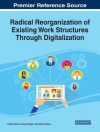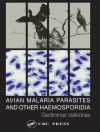The existence of water, energy, and food (WEF) is critical for people to fulfil their basic needs, to achieve welfare, and to support the Sustainable Development Goals (SDGs). The WEF security topic is becoming widely discussed in developing and developed countries. Major components of WEF security i.e. availability, accessibility, and quality should be achieved integratedly to avoid unexpected impacts. The interconnectedness among endogenous and exogenous variables such as environmental, socio-economic, and political factors makes this issue immensely complex. The nexus approach attempts to integrate management and governance across sectors and scales to improve WEF security. This study aims to grasp WEF security in a local context and evaluate the implications of planned local interventions by developing a conceptual and quantitative analysis with local stakeholders. Karawang Regency in Indonesia is chosen as the case study. Several strategies for WEF-related sectors are formulated using location quotient (LQ) and competitive position (CP) methods. In addition, qualitative and quantitative system dynamics models are established by involving related stakeholders through group model building. Finally, a nexus-based framework for WEF security is developed to assist local policymakers in doing the evaluation and planning of WEF resources in the region.
Aries (IHE Institute for Water Education, Delft, The Netherlands) Purwanto
Grasping the Water, Energy, and Food Security Nexus in the Local Context [EPUB ebook]
Case study: Karawang Regency, Indonesia
Grasping the Water, Energy, and Food Security Nexus in the Local Context [EPUB ebook]
Case study: Karawang Regency, Indonesia
Compre este e-book e ganhe mais 1 GRÁTIS!
Formato EPUB ● Páginas 174 ● ISBN 9781000542387 ● Editora CRC Press ● Publicado 2021 ● Carregável 3 vezes ● Moeda EUR ● ID 7962793 ● Proteção contra cópia Adobe DRM
Requer um leitor de ebook capaz de DRM












